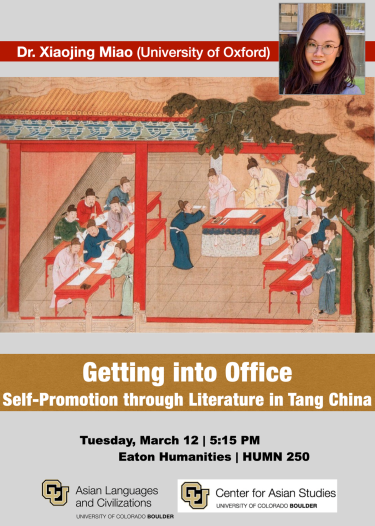
Tuesday, March 12 at 5:15pm
Humanities 250
To enter officialdom and become part of the governmental bureaucracy was the desire of every educated man in medieval China; there was no independent status or wherewithal for a mere scholar or poet. In the Tang (618–907), to advance their career, literati eagerly sought the help of various potential patrons ranging from local administrators to ministers in court and emperors, often by presenting an influential person with their literary writings, in the hope of convincing the potential patron that they were worthy of their favor. Then how did they use self-recommendation writings toward this end? Which aspects of themselves did they isolate and emphasize? What strategies did they adopt to distinguish themselves from their peers, the other contenders in the struggle for patronage? And what can we learn about Tang society from this? By examining Tang literati’s self- promotion in search of patronage across various genres, this talk aims to enhance our understanding of notions of self and the various modes of self-representation in Tang China and reveal the rules and workings involved in patronage-seeking activities.
